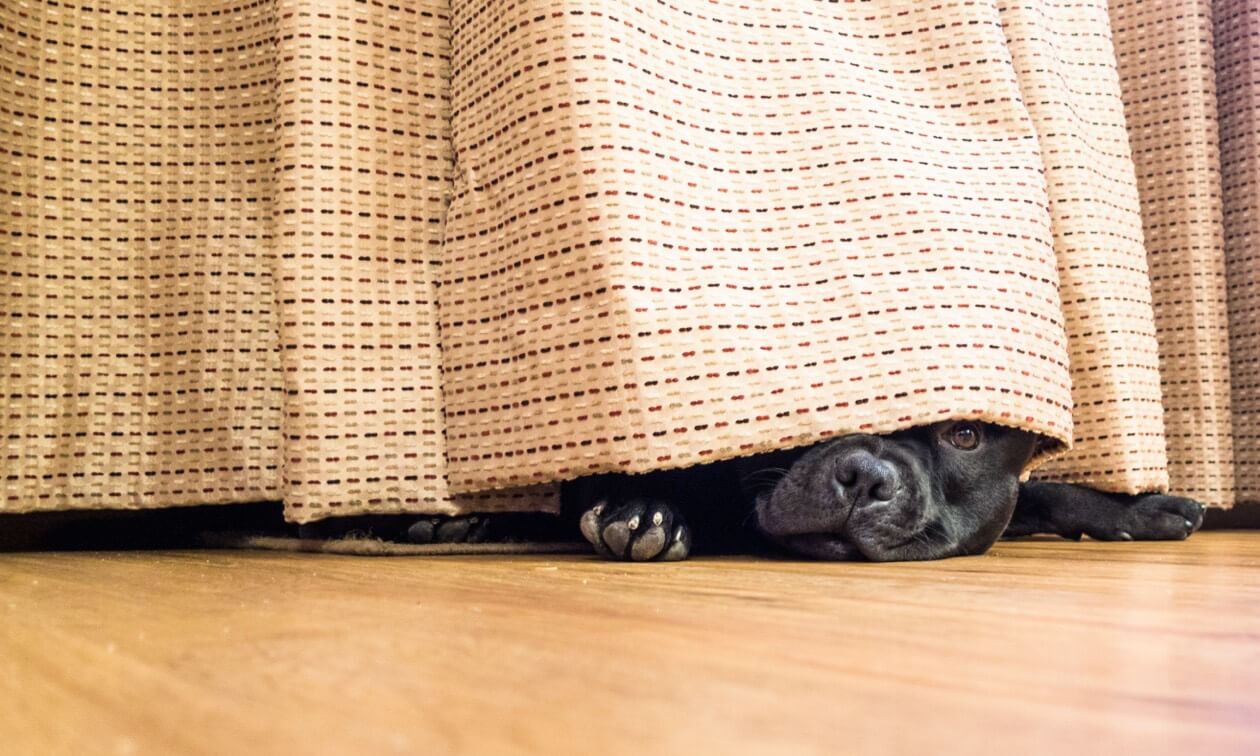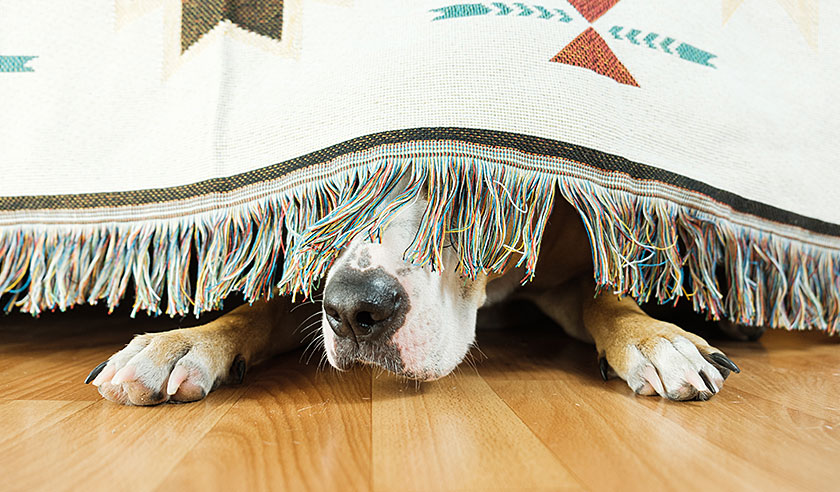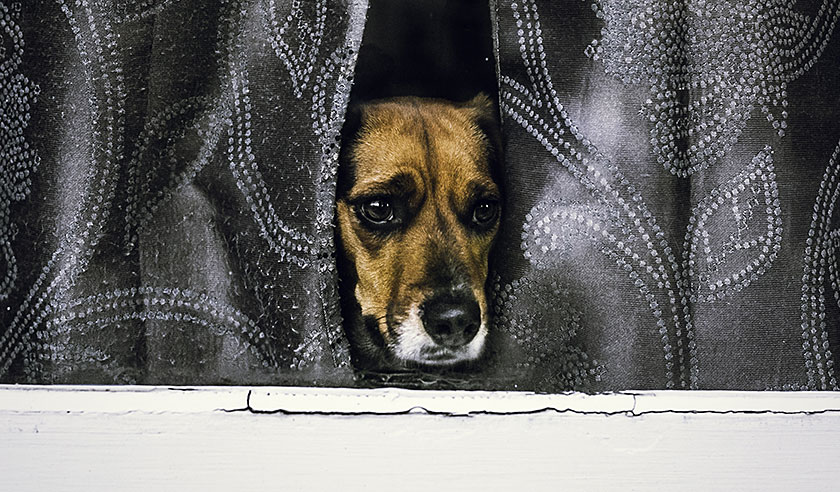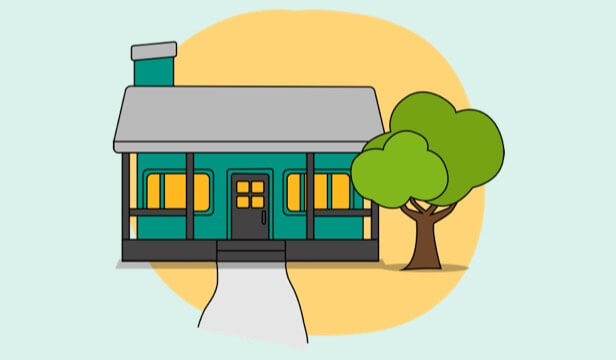Fireworks are common throughout the summer, especially on holidays like Independence Day. What we might see as a fun way to celebrate can be terrifying for our furry friends. Loud booms and bright flashes of lights can be seriously distressing for your dog.
What Is Noise Aversion?
At least one-third of dogs suffer from noise aversion,1 a fear and anxiety exhibited upon hearing loud noises (including fireworks) that leads to stress, suffering and potentially-destructive behavior. Other terms used to describe this response to noise include noise anxiety or noise phobia.
Noise aversion shouldn’t be a normal part of “being a dog,” as it’s actually a serious medical condition that can be treated. Even though noise aversion is a medical condition, only 40% of owners of dogs that display noise aversion signs seek help from their veterinarian.2 This is particularly sad, as delaying the diagnosis and treatment can increase both the frequency and severity of a dog’s symptoms, worsen their overall quality of life, increase their risk of injury, and even put a strain on the bond between your family and your dog.2,3
Signs of Noise Aversion in Dogs3
- Pacing or restlessness
- Lip licking
- Trembling or shaking
- Panting
- Excessive alertness or hypervigilance
- Cowering
- Hiding
- Brow furrowed or ears back
- Freezing or immobility
- Owner seeking behavior or excessive clinginess
- Refusing to eat
- Yawning
- Vocalizing (whining or barking at the sounds)
How Noise Aversion Impacts Dogs
When a dog with a noise aversion to fireworks hears them, it’s terrifying and causes great distress. It’s similar to a person experiencing a panic attack. This fear and anxiety causes their heart to race, puts them on heightened alert, and may even cause them to engage in destructive behavior. This destructive behavior can cause your dog to injure themselves trying to escape their environment, or damage their surroundings by chewing furniture, scratching floors and doors, or digging holes in your yard.
Untreated noise aversion can also lead to or worsen other canine anxieties, like separation anxiety or general anxiety. It can become a bit of a vicious cycle for an undiagnosed and untreated dog.
How Do I Know My Dog Has Noise Aversion?
Noise aversion is a medical diagnosis, but you need to recognize and speak to your veterinarian about your dog’s signs before diagnosis and treatment can begin. Use this noise aversion checklist to see if your dog is displaying any of the signs and behaviors that might indicate a noise aversion to fireworks. If they are, it’s time for a visit to your vet to confirm the diagnosis and then figure out a treatment and management plan.
What Should I Do if My Dog Has Noise Aversion?
If your veterinarian confirms the diagnosis of noise aversion, your dog’s treatment plan may include a combination of medications, behavior modification, and environmental modification.
Medication
Different medications may be prescribed, including a medication that you can administer to your dog before or as fireworks occur. This can help provide your dog with more immediate relief from their noise aversion symptoms.
Behavior Modification
Behavior modification techniques such as counterconditioning and systematic desensitization can help your dog become less fearful of the noise. When using behavior modification techniques, it’s often best to work with a board-certified veterinary behaviorist or a rewards-based, certified dog trainer (ask your veterinarian for a recommendation).
Environmental Modification
Your veterinarian may also recommend ways to modify your dog’s environment. You can create a safe haven for your dog following these tips.
- Create a safe zone in an interior room, away from windows, if possible (a bathroom or closet works best). If not, draw the blinds or use blackening shades to help prevent flashes of light, which are associated with fireworks.
- Place their crate, blankets, food and water, and a favorite toy in this area to help them relax and like spending time in this space.
- Add white noise or use a fan to help muffle the noises associated with fireworks. Alternatively, turn on music (loud enough to drown out the noise but not so loud that you frighten your dog even more).
Remember that your dog is reacting to the noise out of fear and anxiety, so never punish your dog for their noise aversion signs, as that will only make your dog more fearful and anxious.
Noise aversion is a terrible experience for your dog. By identifying the signs and speaking to your veterinarian to initiate treatment early, you can prevent your dog from suffering and keep her a happy and healthy member of your family the entire year, including the July 4th Holiday.
Learn more about helping your dog by minimizing the effects of the "sound monster" around your home.
ZPC-00283R2
- ZMR: The Harris Poll: Cerenia Sileo Omnibus December 12 2018
- ZMR: FR Market Research Noise Aversion February 2016 (November 2016 Update)
- Shull-Selcer EA, Stagg W. Advances in the understanding and treatment of noise phobias. Vet Clin Nor Amer: Small Anim Pract. 1991;21(2):353-367.






